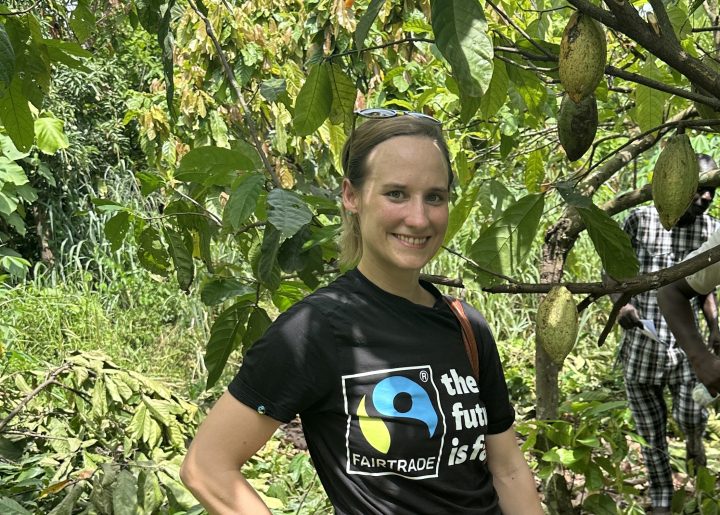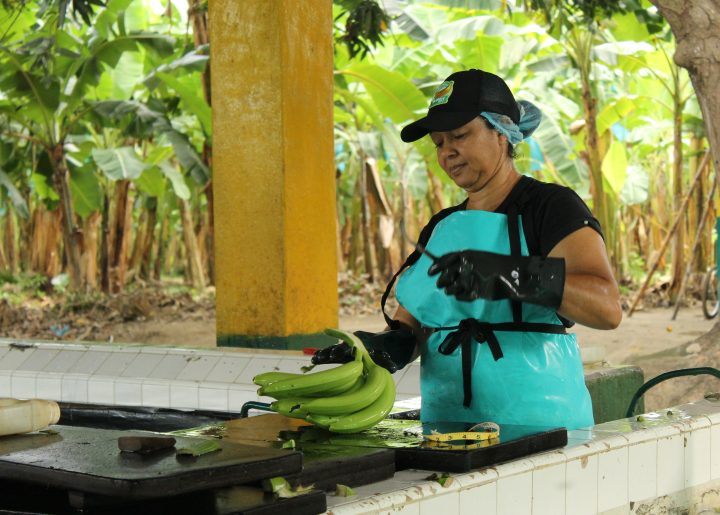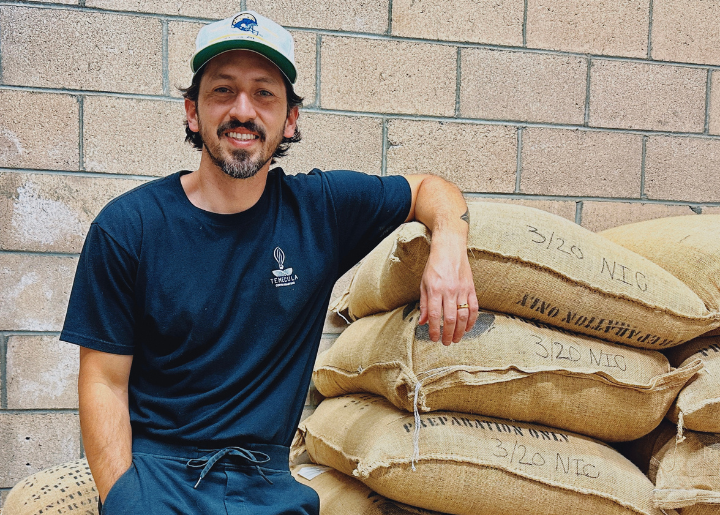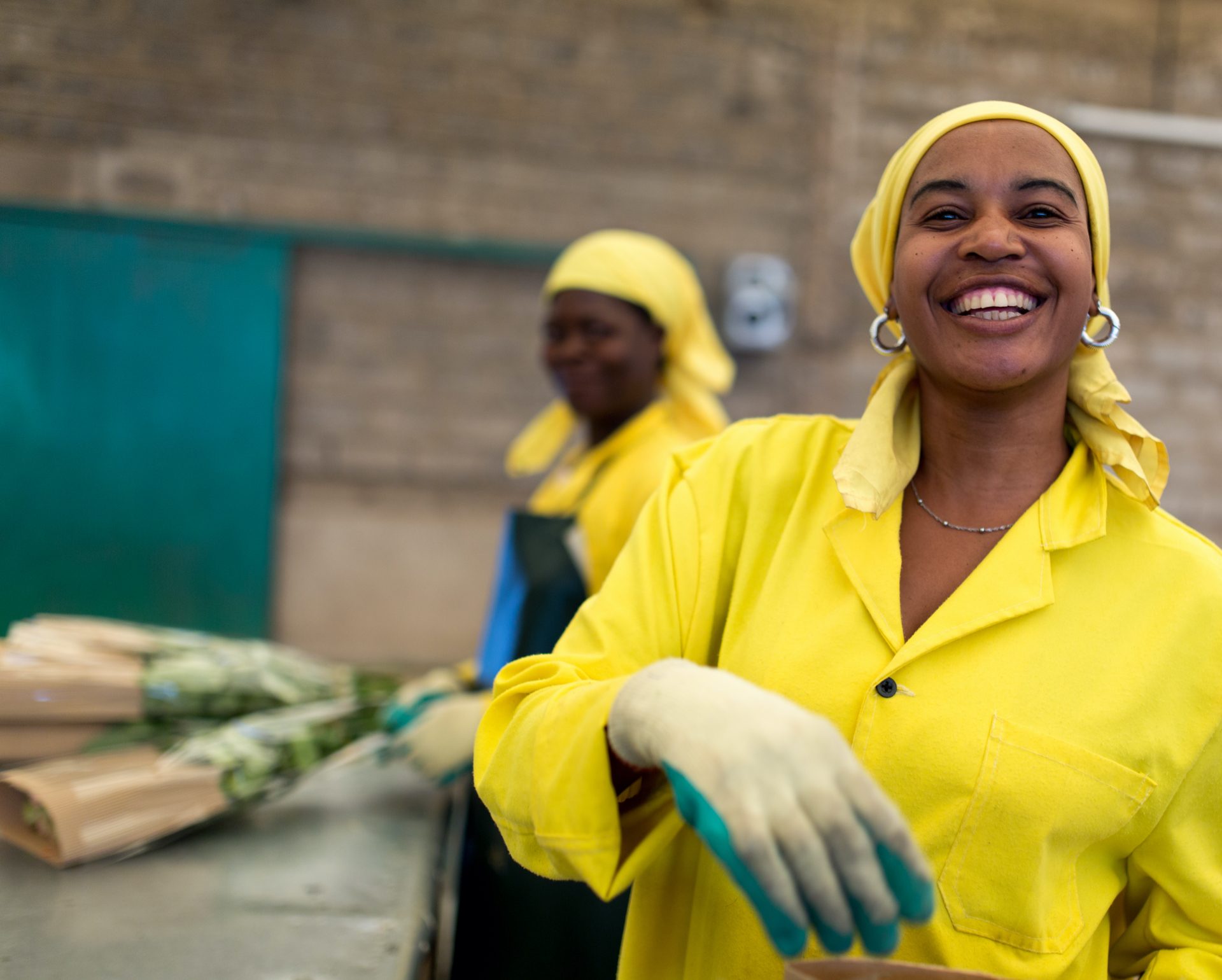Fairtrade Joins the Fashion Revolution
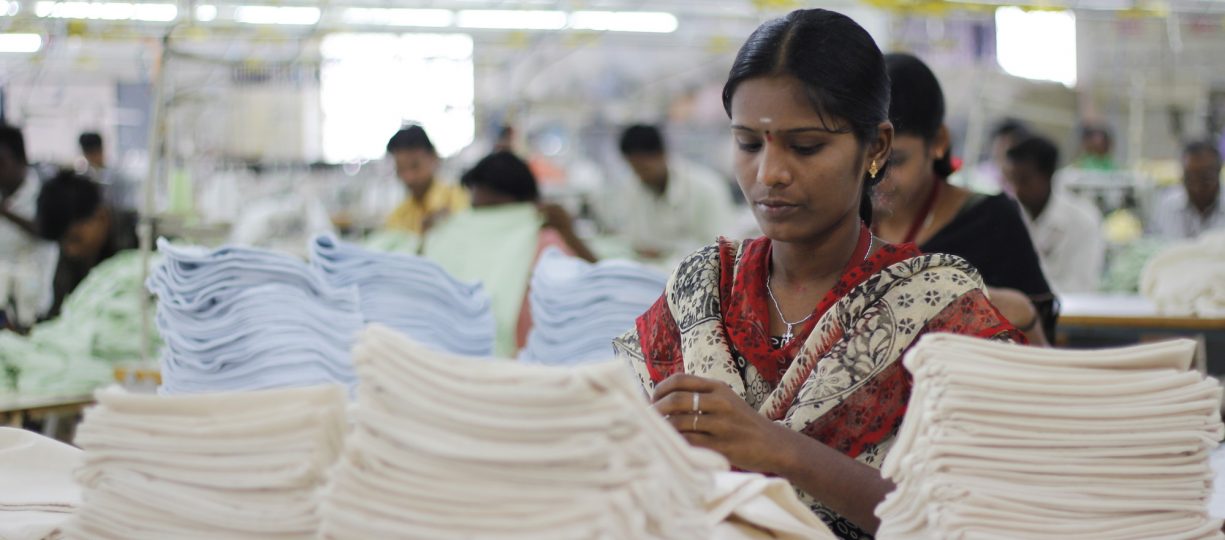
This blog originally appeared on the Fairtrade partner zone of Guardian Sustainable Business (GSB) on April 20, 2016.
Fairtrade’s new initiative aims to improve the working conditions, wages and rights of textile workers and farmers at all stages of production.
I love fashion and I love buying nice clothes. I take pleasure in choosing outfits and of course, in seeing myself wearing my favourite piece as I glance in the mirror before leaving home, the same as people the world over. Clothes can make us all feel good, comfortable, and they allow us to show part of our personalities. But there are two sides to every story and the fashion industry is no exception.
Three years ago, on 24 April 2013, the world woke up to fashion’s dark side when 1,130 factory workers were killed and 2,250 were injured during the Rana Plaza collapse in Bangladesh. It was the worst accident in the history of the modern garment industry. Its impact went far beyond Asia and the awareness of problems within the fashion industry increased rapidly. Yet in our pursuit of the latest trends and bargains, it’s easy to forget the invisible stain on our clothes. Because fashion, an industry that’s full of creativity, passion and inspiration, is also one which is built upon the backs of millions of workers who suffer from insufficient protection, human rights violations and who remain unaware of their legal rights.
I can’t ignore this grim reality, not just because I read the news but because in my 20 year career as a textile specialist I’ve seen how workers really live. Fairtrade has been working to address this for more than a decade and since its Standard for Fairtrade cotton was launched in 2005 we have achieved a great deal for cotton farmers, and subsequently, we have worked to extend our rigorous regulations to include the entire value chain.
That’s why I’m proud that ahead of this year’s Fashion Revolution campaign we launched our new Fairtrade Textile Standard and Programme, which for the first time, means that everyone in that supply chain, from farm to factory, benefits. This landmark initiative aims to improve the working conditions, wages and rights of textile workers and farmers at all stages of production. It’s an approach that goes way beyond compliance and auditing – it combines a strong standard with a programme to support workers and factories to improve working and living conditions. It is also the first Fairtrade standard ever with a fixed timeline to achieve living wages and factories will be required to address this within six years.
To change the system it’s crucial to make brands take responsibility. Therefore the standard also includes long-term commitments between brands and suppliers with fair purchasing practises. The Fairtrade Textile Standard and Programme provide companies with an opportunity to drive positive change in the clothing and textiles industry. The focus lays on strengthening the position of workers to negotiate their own work terms and ensures their rights are protected. Apart from Fairtrade cotton the standard allows other sustainable fibres, meaning we can extend our reach beyond the cotton farms, to support a huge amount of workers too.
For me personally, the Fairtrade Textile Programme goes to the heart of all that Fairtrade as a movement represents. When I visit factories in India or other countries it’s obvious that there’s still a long way to go to achieve significant and lasting change for textile workers behind our clothes. It’s a test of patience requiring commitment and staying power. But lasting change can be achieved, through training and by raising awareness of workers’ rights. The aim of the programme is to build up an extensive support programme on the ground, offering consulting and training at factories and production sites. This programme will also be open for companies that are not yet in the Fairtrade system or part of a Fairtrade supply chain but would like to improve conditions in their textile factories.
The programme will provide support in areas where there’s a need for improvement, such as occupational health and safety, workers’ empowerment, living wages and efficiency and increased productivity. Our experts will do pre-assessments with the factories, followed by action plans based on the findings, which are agreed by the management of the production site. The follow-up is carried out by Fairtrade staff, trade unions, training centres and external partners and experts.
We started off in India and built up a team of male and female experts, who are familiar with the problems in the textile industry, speak the local languages and know the cultural circumstances. Without those skills it’s impossible to pinpoint problems and find solutions for each factory and its respective workforce.
I love fashion but no one should suffer so that I can wear nice clothes, especially clothes that tell a bleak story. And that’s why at Fairtrade we’re fighting to end this suffering. We’ve stood alongside others in campaigning for fairer fashion since the Rana Plaza tragedy. And while that has generated lots of media attention and seen the garment industry promise to change, we need more action. That’s why I’m convinced that Fairtrade can contribute to tangible change in textile supply chains and fly the flag for empowerment of workers and their rights. That’s what I work for and what I stand for. And that’s what I ask of you. Fairtrade offers companies a new solution to clean up the industry, so I invite you to come on board and sign up to our new Textile Standard and Programme. That way our clothing bargains don’t need to carry such a high price.
Read more on Fairtrade and fashion supply chains here from Stefanie Colish, Licensing Manager at Fairtrade America.
Topics
We’re in this together
Fairtrade America partners with brands on the journey to certification and beyond. We can help with everything from finding a certified supply chain to marketing your newly certified product.
Get in Touch
